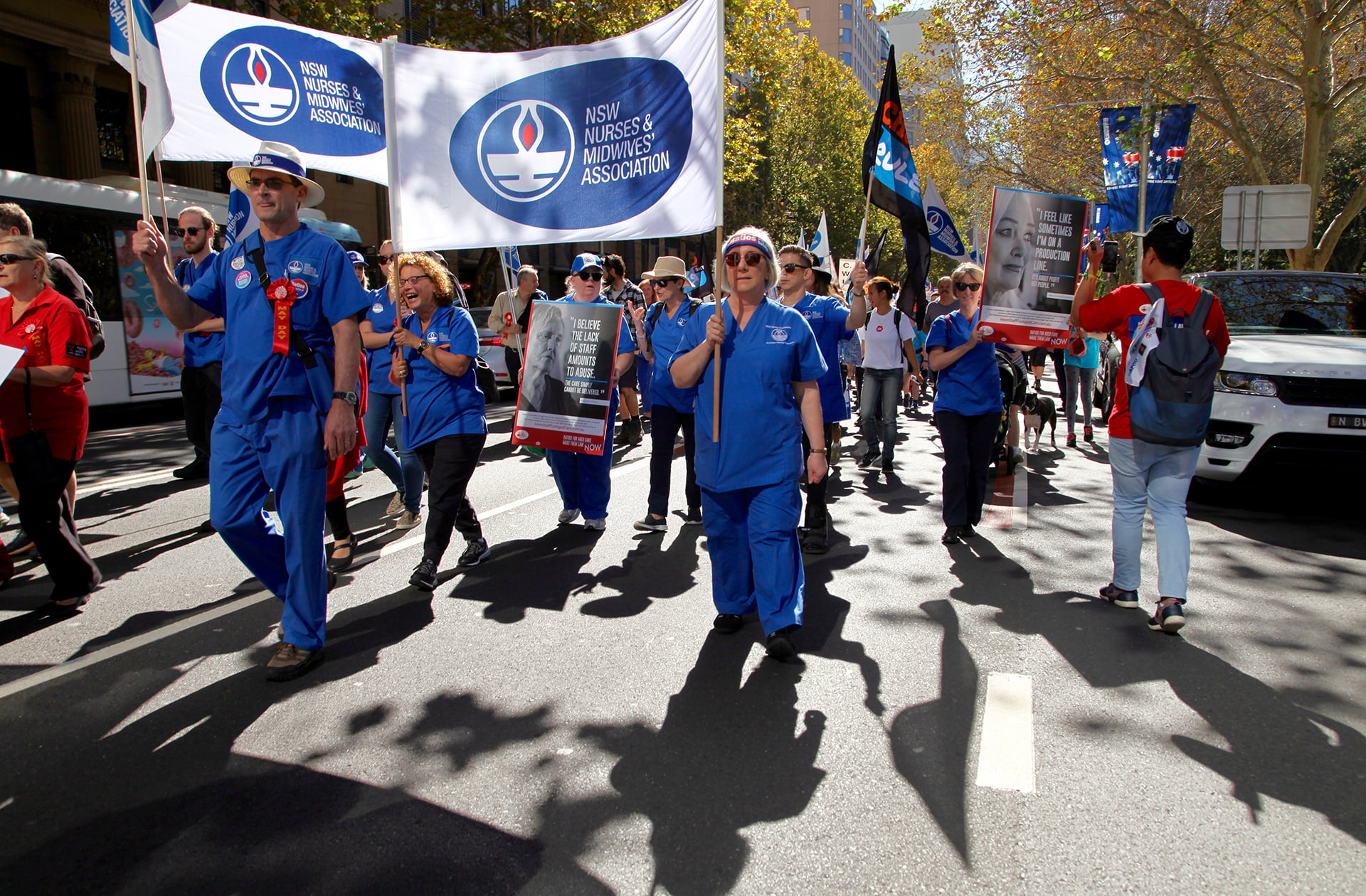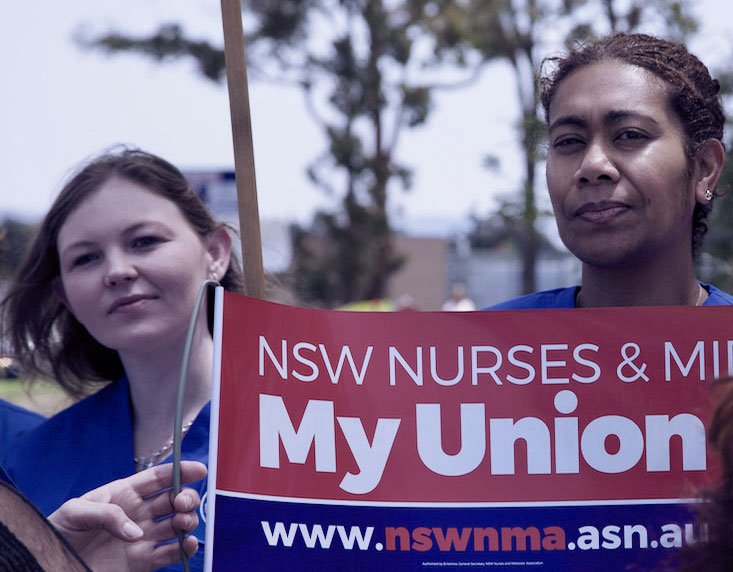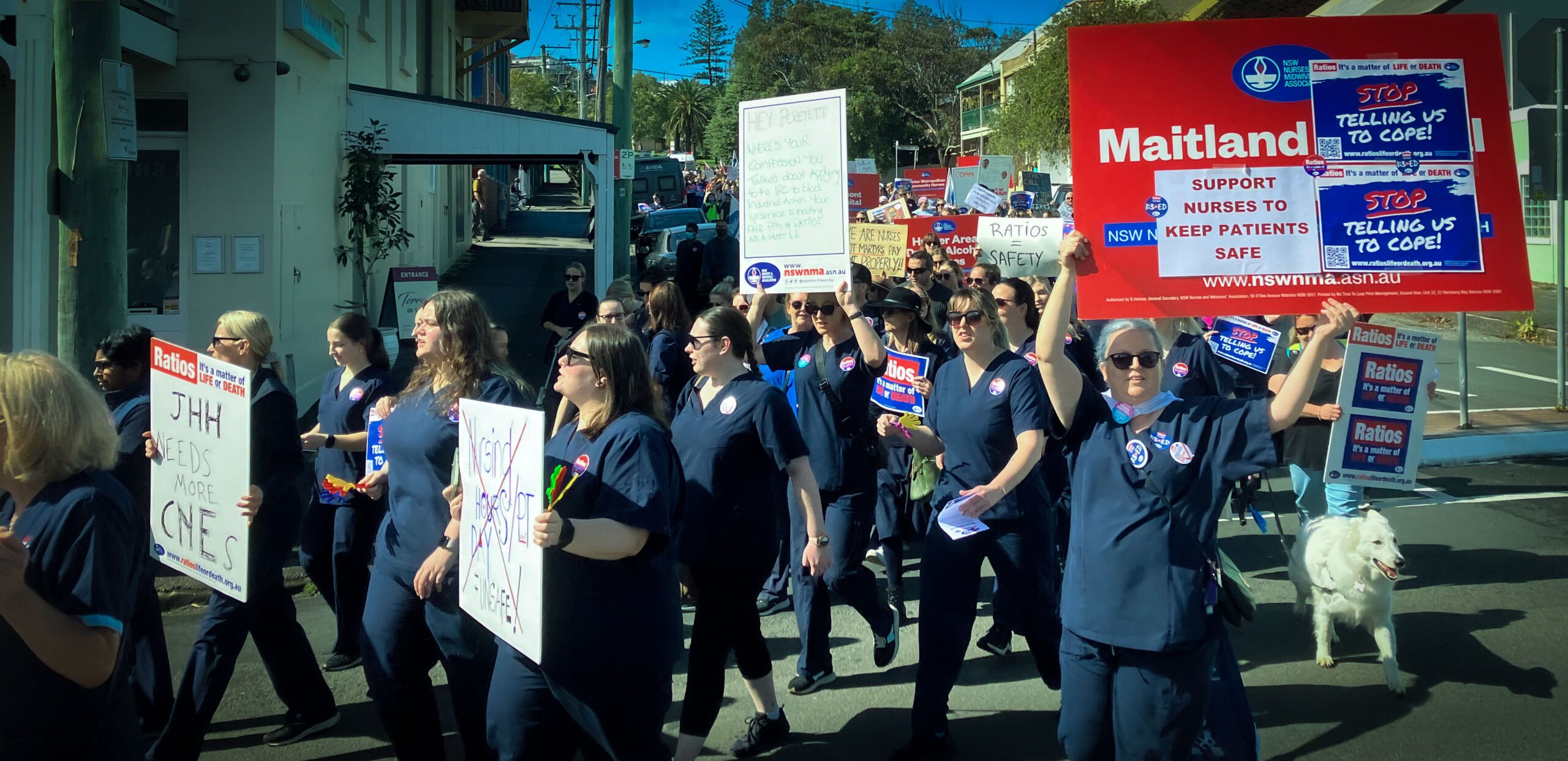The NSW Nurses and Midwives’ Association (NSWNMA) has commended several long-overdue improvements proposed by the Mental Health Commission of NSW, but noted some recommendations required detailed exploration for best practice and implementation.
General Secretary of the NSWNMA, Brett Holmes, welcomed a key objective within the recently released report, Living Well: A Strategic Plan for Mental Health in NSW 2014-2024, to boost investment in community mental health.
“Community mental health services in NSW have been systemically under-resourced, resulting in long term neglect. This lack of funding and failure to quarantine mental health budgets has led to a marked decrease in resources due to their lack of visibility compared to hospital services,” Mr Holmes said.
“Creating easier pathways for people to access care before they become acutely unwell is vital and the NSW Government’s subsequent commitment of $115 million over three years will assist to achieve this.”
The NSWNMA applauded the Plan’s recommendations to challenge stigma and discrimination through local campaigns in rural and remote communities, as well as specific approaches for Indigenous communities.
Efforts to overhaul mainstream mental health services and initiatives to be inclusive of the LGBTI community, people with intellectual disability, clients of the criminal justice system and those with drug and alcohol issues were commended. School-based mental health services were also considered progressive steps forward.
“No doubt, the introduction of a successful peer workforce would take time to fully integrate throughout community mental health,” Mr Holmes said.
“Peer workers have been a part of the workforce for a number of years in different roles including consumer support advocates. Like any workforce, skill mix is critical to keep the balance optimal.”
A major concern of the NSWNMA was the apparent push for non-government and private sector organisations to take over management and mental health care provision from the public sector.
For many years the NSWNMA has lobbied against the NSW Government’s agenda of privatising public hospitals and other health services. Alarmingly, a recommendation in the Plan encourages services currently delivered in the public sector to be ‘devolved’ to the non-government and private sectors, including the full range of clinical and non-clinical community mental health services.
“The Plan advocates for non-government and private organisations to be handed the management of community services, rather than ensuring the community mental health sector remains within the public system and is adequately resourced, rebuilt and accountable to the standard it should have been,” Mr Holmes said.
The NSWNMA said the Plan recommended ensuring capacity for innovation was not lost and could be achieved if the non-government and private sectors became entirely responsive to contract specifications, prompting concerns this could result in reduced legislation or regulation of the organisations involved.
It is suggested there would be bed closures in some areas of mental health or beds being reassigned to other areas, again raising questions about the retention of entitlements for nursing staff if transitioning over to the non-government and private sectors – as occurring with the devolution of public disability services in NSW.
The Plan comes at a time when there is a general downturn in the broader economy and governments are looking for savings to cope with expected growth in costs associated with demand and our ageing population.
“We can assume that this need for cost saving is driving the Government’s theme of increased non-government and private sector care provision,” Mr Holmes said.
Mr Holmes said it was important to note the Independent Commission Against Corruption’s position paper released in December 2012, Funding NGO delivery of human services in NSW: A period of transition, which identified frauds of $21 million over three years up to 30 June 2012. The Commissioner asked that representative bodies, such as colleges and unions, provide leadership and to speak out where necessary.
The NSWNMA said a crucial element to keeping people out of hospital was the development of a more robust public community mental health service, supported by an adequate workforce with relevant expertise and professional education, along with the resources to meet demand for services and which ensures continuity of care.
“We need to build a stronger workforce through strategic recruitment and develop a better retention of expert staff in mental health,” Mr Holmes said.
“Local Health District Boards will need to revitalise and build their community mental health systems. One suggestion is for LHDs to retain community mental health services ‘in house’, then resource and rebuild those services already in place. We would support this as the best option.”
The NSWNMA stressed that the NSW Government must exercise caution and urged LHDs not to completely outsource care, given the complexity of anticipating changes in the structure of mental health in the future.
“The Plan could spell the beginning of a radical sell-off of our community mental health services and we can only urge the NSW Government and LHDs to not venture down this path, but instead to rebuild their own public community mental health services and retain management and ownership of them into the future,” Mr Holmes said.








